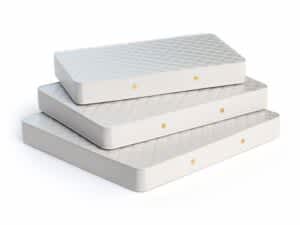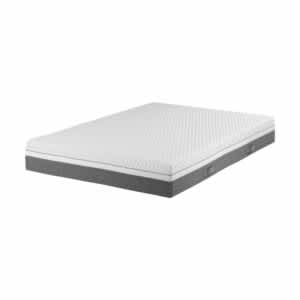While everyone sleeps, not everyone sleeps the same way. Sleep preferences can vary widely — from mattress size and firmness level to sleeping position. With several mattress dimensions available from manufacturers, it can be difficult to figure out which one will best suit your needs. Additionally, with different mattress companies using different names for the same mattress sizes, it can add confusion for those unfamiliar with the terminology.
Single, twin, twin XL, and full mattresses are most common for those who have limited floor space. These bed sizes can also be good options for single sleepers. We’ll explore twin and single mattresses and how to pick the right mattress for your lifestyle.
Let Us Help You Find the Perfect Bed
Answer a few questions to find the right mattress for your unique needs
What Is the Difference Between Single and Twin Mattresses?
There is no functional difference between single and twin mattresses, and many people use their names interchangeably. Both have the same standard dimensions of 38 or 39 inches wide by 75 inches long, and they differ only in name.
While twin beds can comfortably accommodate most adults, taller individuals may want to consider a twin XL mattress. Twin XL beds are 5 inches longer than regular twins, measuring 38 inches by 80 inches.
Where Do the Terms Single and Twin Come From?
Depending on where you live in the world, you may hear one term more often than the other. In the United States, the term “twin” is used more often than “single.” This wasn’t always the case, though.
Single used to be a more common term until the hotel industry began placing two single beds next to each other and referred to the matching beds as twins. While some models like bunk beds are meant to be bought in pairs, twin mattresses today are most often purchased individually.





































